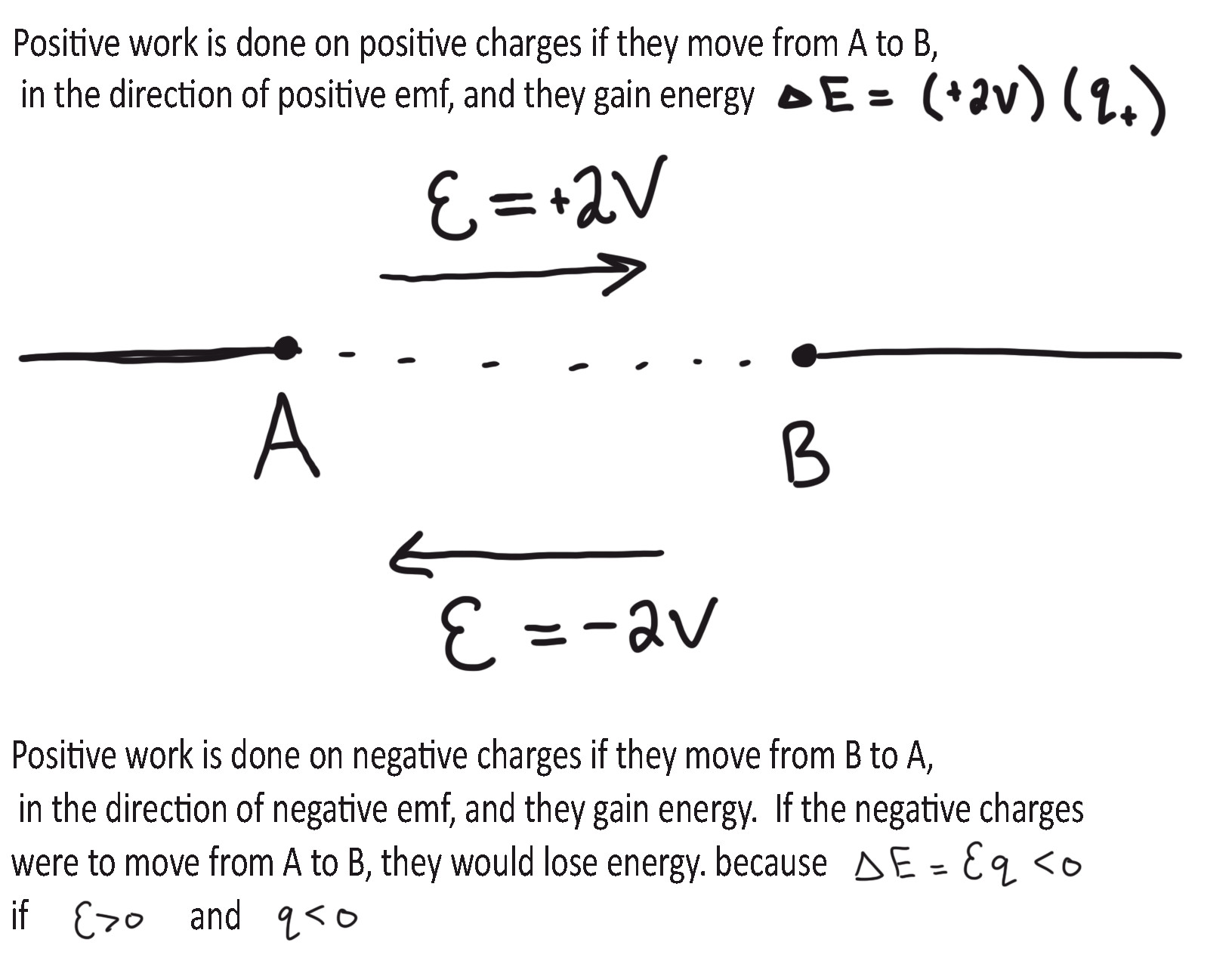Question #14120
1 Answer
An emf can give energy to both positive and negative charges.
Explanation:
An emf,
A general charge
when the charge moves from point A to point B over which the emf is defined.
Note from the definition that if a positive unit charge loses energy to an emf when going from A to B, it follows that the emf is negative in that direction.
Also, the emf applied in going from point A to B is opposite in sign to the emf applied when going the opposite way from point B to point A.
Charges get pulled in the direction in which they gain energy.
By considering that the change in energy is
Posititve charges get pulled in the direction of positive emf.
( because when
Negative charges get pulled in the direction of negative emf.
( because when
Therefore the emf acts on on both positive and negative charges, but it pushes them in opposite directions because the direction of positive emf is opposite to the direction of negative emf.
In a metal wire the free charges, electrons, are negative so the emf only ends up moving the negative charges.
Edit: Diagram of case assuming

